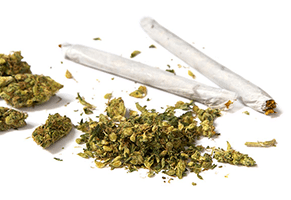Facts About Marijuana Impaired Driving
A year ago we wrote a blog post about drugged driving with the startling statistic that in 2015 there were more traffic fatalities in Tennessee attributed to drivers under the influence of drugs than drivers who were drunk. Although the statistics did not provide the percentages of drivers impaired by specific drugs, we speculated that opiates were the most likely cause of drugged driver fatalities in Tennessee because of the widespread use of opiates among Tennesseans. A recent conversation about the status of testing drivers for drugs led us to look more closely into the issue of drugged driving – and specifically the role of marijuana in traffic accidents.
We were interested in marijuana-impaired drivers for several reasons. More people are using marijuana because of the decriminalization by several states; the recent passage of state laws regarding driving under the influence of marijuana; and the efforts by several companies to develop a “marijuana breathalyzer.” So we did some research, relying primarily on a July 2017 NHTSA document, “Marijuana-Impaired Driving: A Report to Congress.” Many of the facts that we learned are counter-intuitive.
There is no correlation between THC levels and impairment
Say what? How can that be? We are so accustomed to the direct correlation between alcohol intoxication (as measured by BAC level) and impairment we expect the same for marijuana. As it turns out, it’s simply not the case.
As this graph shows, THC levels drop rapidly after smoking, while impairment declines slowly. Therefore, knowing a driver’s THC level will not predict whether they are impaired.
Do state marijuana-impaired driver laws make sense?
Several states have marijuana per se laws that state a driver is impaired if their THC level is above a certain limit, typically 5 ng/ml as measured in blood. The NHTSA report that we referenced earlier dryly notes in regards to state marijuana per se laws, “This per se limit appears to have been based on something other than scientific evidence.” (Who says that Federal bureaucrats don’t have a sense of humor?) As we noted in the previous paragraph, there is no scientific evidence linking THC levels to marijuana impairment. In the absence of scientific evidence and yet feeling the need to pass legislation to address marijuana and driving, it appears that state legislatures took the laws that are used for drunk driving and adapted them to marijuana-impaired driving. As researchers learn more about how to measure impairment from marijuana, we hope that legislators will modify these laws to reflect the gains in knowledge that are sure to come.
Does marijuana impair driving?
You’d think the answer would be a simple “yes” and that there would be many studies to support this. But the NHTSA report decided to get all science-y and fact based and did not give a definitive answer. It turns out there are a lot of studies on this subject; a few studies show less risk of crashing for drivers who were positive for THC, and more studies show increase risk of accidents due to marijuana use. NHTSA found methodological issues with most of these studies, however, and so conducted their own study using data from 3,000 crash-involved drivers and 6,000 control drivers. Their initial data showed an increase risk of crashes of 25% for drivers with active THC in their system. However, after normalizing the data for age (younger people have more accidents) and gender (males have more accidents than females) the calculated risk was reduced to a statistically insignificant 5%. And after accounting for those THC-positive drivers who also had alcohol in their system, the risk associated with THC went to zero – meaning the study found no correlation with marijuana and increased risk of crashes.
The future of marijuana breathalyzers
Given what we know today – no correlation between THC levels and impairment, state marijuana per se laws – does it make sense to continue to develop a marijuana breathalyzer? As a business decision our answer is yes. As long as states have marijuana per se laws it seems that law enforcement will be very eager to use a roadside marijuana breathalyzer to enforce marijuana per se laws. And there are many other applications for such a device outside of law enforcement, such a corrections and substance abuse treatment programs where marijuana use is prohibited.
We’re at the frontier
It’s surprising how much we don’t know about marijuana impairment. The science of measuring marijuana impairment is certain to evolve and advance. At the same time it is likely that more states will decriminalize marijuana, making it more urgent that scientists solve some of these issues. While we hope that we’ll see scientific advances in the next year or two, we tend to forget the decades of scientific research that led to what we know today about alcohol intoxication and impairment. It’s hard to imagine waiting decades for a complete understanding of marijuana impairment, but that in fact might be the reality.

